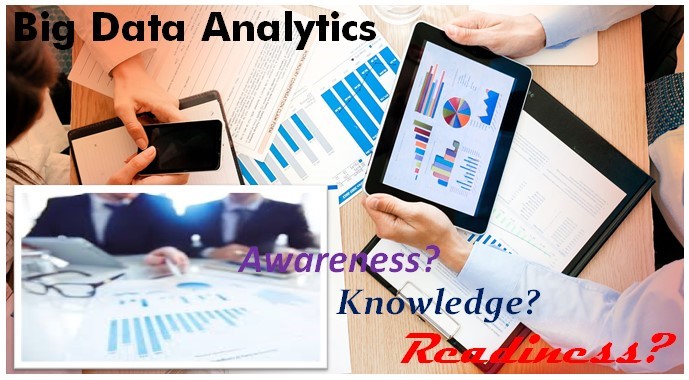Development of Big Data Analytics Readiness Index among UKM Staff
– Headed By Dr. Mohamad Taha Ijab.
This study looks at the aspects of awareness, knowledge and readiness of UKM staff in relation to big data analytics concepts. It delves into UKM’s capability in implementing big data analytics for its day-to-day operations. Awareness, knowledge and readiness of big data analytics concepts are important because all the information generated and needed to make decisions comes from a variety of sources and forms of data, whether structured, semi-structured or unstructured. It requires reasoning skills based and driven on data and facts in making decisions. An index is developed at the end of the project which measures the levels of awareness, knowledge and readiness of UKM staff with regards to big data analytics.
INTRODUCTION OF RESEARCH
In the field of academic and at higher education institutions, many efforts have been undertaken by scholars in local universities and research centers related to big data analytics. Among them are academic programs at bachelor, undergraduate and doctoral degrees. The field of study in this area is typically called Data Science. In terms of research work, many researchers have begun researching the data analytics concept from the perspective of topics such as data collection, data sourcing, data quality, data cleaning, data manipulation, enterprise data dictionary development, structured and unstructured data analytics, data visualization, data modeling, machine learning, data mining, statistics, programming using R and Python, and using analytic frameworks and data visualization such as Hadoop, Tableau, Power BI, and so on.
According to the study by Tengku Izhar and Mohd Shoid (2016), data analytic awareness and knowledge can be measured by evaluating: the level of experience using data analytics, the level of data analytic use, and the level of data analytics efficacy. All of these components will lead to awareness and knowledge of the data analytics concept. The experience of using data analytics includes knowing the analytical definition of the data, knowing how the data is produced, and the types of data in the organization (whether the data can be categorized as data). The level of data analytic use is important as it helps to understand the data in daily operations especially to help make decisions and prioritize priorities. For the level of data analytics efficacy, it is important that the use of analytic data can be seen to increase organizational operating margin, especially from innovation, competition and productivity. To evaluate the readiness of data analytics, the World Bank Group through the Open Government Data Working Group has developed a framework for assessing the availability of a country in an open data analytics. This framework is called Open Data Readiness Assessment (ODRA). For the purposes of this study, the ODRA framework is adopted and modified by taking into consideration the following aspects of readiness: (i) top leadership, (ii) policies and legal frameworks, (iii) employee engagement in data analytics, and (iv) technological infrastructure, financial and trainings.
FINDINGS OF RESEARCH
The findings of this study showed that the level of awareness, knowledge and readiness of UKM staff on big data analytics in general is relatively low. Based on interviews with ten (10) experts in UKM, the most prevalent issue is the lack of written policy and guidelines or framework on how UKM should implement big data analytics. Further, a strong and dedicated champion is needed in order to drive UKM’s use of big data analytics in its daily operations. The other findings include the lack of financial support and allocation, infrastructural issues, and human capital with sufficiently trained capabilities as data scientists, data engineers and data analysts.
FUTURE WORKS
Based on the initial findings from the ten interviews, a set of questionnaires will be developed that will reflect the development of an Index. It is expected that around 600 staff will be asked to respond to the survey and the findings will be recalculated into an index that measure the level of awareness, knowledge and readiness of UKM staff towards big data analytics concept.

